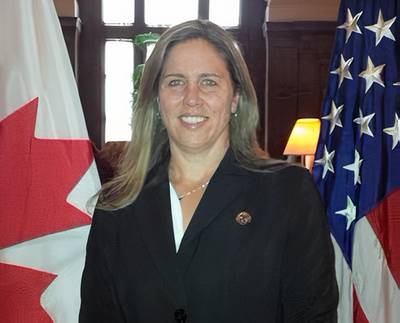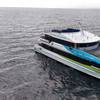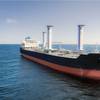Q&A: Growing Blue Economy Opportunities for US Exporters in Canada
Canada is one of 20 markets to be featured at the Discover Global Markets: The Blue Economy export forum September 20-22, 2022
The growing demand for marine technologies is generating new export possibilities for U.S. companies. To help American businesses pursue these opportunities, the Department of Commerce’s International Trade Administration (ITA) is hosting Discover Global Markets: The Blue Economy, in Providence, Rhode Island, Sept. 20-22, 2022. Based at the U.S. Embassy in Ottawa, Canada Senior Commercial Specialist Tracey Ford is leading a delegation with a Canadian buyer to the event. Tracey is part of ITA’s U.S. Commercial Service’s global network of offices located in 100+ cities across the United States and in U.S. embassies and consulates in more than 75 markets. She will be joined at the export forum by U.S. businesses, foreign buyer delegations, and U.S. Commercial Service marine industry experts from 20 countries. In the below Q&A, Tracey shares some insights on Canada marine technology opportunities, doing business in the market, and agency export resources to help.
Could you describe the delegation you are bringing to the DGM Blue Economy export forum?
Our delegation will include Deep Trekker, an Ontario, Canada manufacturer of underwater remotely operated vehicles (ROVs) and robots used for sub-aquatic inspections and monitoring. The U.S. Commercial Service will be onsite to counsel U.S. companies on how to enter and do business in the Canadian market
What is attractive about the Canadian market for U.S. suppliers of marine technologies?
Canada is a water nation – it touches three oceans, has nearly 155,000 miles of coastline and almost 1 in 5 Canadians live in a coastal community. Canada has been a keen supporter of developing the blue economy by establishing industries that are environmentally sustainable, and economically profitable. The governments of Canada are working to transform traditional blue industries like fisheries, tourism, and shipping to address unsustainable practices, and encouraging new technologies and emerging sectors like wave and tidal energy. Canada’s North Atlantic coastline, particularly Halifax, Nova Scotia, is emerging as a hotspot for blue economy research, investment, and innovation.
U.S. suppliers may also take advantage of Canada’s highly skilled pool of talent in research and development in the area of ocean technologies through several state-of-the-art organizations, including Oceans Network Canada and innovation hubs such as the Ocean Supercluster.
Do U.S. marine tech firms have any competitive advantages when entering Canada’s market?
U.S. companies have a distinct advantage when doing business in Canada, and it’s not just our geographic proximity. In many cases, we share an alignment of regulations and certifications in trade, and are close collaborators in marine and environmental science. In addition, the United States-Mexico-Canada Agreement (USMCA) provides several benefits to U.S. exporters to Canada including reducing the costs of moving goods internationally, greater protection for intellectual property and a number of resources aimed at small businesses. For more information on how the USMCA can help your business export to Canada, visit the U.S. Commercial Service website at www.trade.gov/usmca.
Are there opportunities for U.S. small and medium-sized exporters or new to market businesses in Canada?
Yes! Canada boasts a number of established industries in the blue economy, including shipbuilding, shipping/ports, marine transportation, and fisheries & processing. Specifically, lucrative opportunities for U.S. exporters exist in the emerging industries such as offshore wind, ocean renewable energy, safety & surveillance and marine biotechnology. Now is a good time for U.S. companies that start building relationships and branding themselves in Canada and seek partnership opportunities with Canadian companies or feeding into the country’s supply chain. ITA is also working to help women and minority-owned firms achieve success through exporting.
What are some challenges that U.S. marine tech firms face in doing business in Canada?
While some of the industries within Canada’s blue economy are well-established, the emerging industries may pose some challenges to enter for U.S. firms. The key challenges include outdated regulations that are slow to adapt and overly cumbersome, lack of data to inform decision-making and sector challenges attracting workers. To offset these challenges, U.S. companies should work through Canada’s blue economy associations, such as Marine Renewables Canada, COVE or Canada’s Ocean supercluster. These organizations are an excellent source of data, programs, and networking.
Can you give any advice or tips to U.S. businesses looking to enter Canada’s market?
The best advice I can give to entering the Canadian market is that while there are many similarities to doing business in Canada, you need to remember that the Canadian market is distinct and separate from the United States in many important ways. We can help you do your homework and understand the differences as well as the similarities before you enter any business arrangements. For example, Canada is a bilingual country and while English is the primary language of business, when dealing in the province of Quebec, French may be a requirement. This also affects packaging and labelling requirements, which must be in both French and English. You will also need to understand what standards and certifications are relevant to your products. Our Commercial Specialists in Canada can help you understand these challenges.
Why is it an advantage to have your delegation at the event?
The blue economy is one of the growing sectors in Canada, and the DGM is an ideal platform for face-to-face networking between potential sellers and buyers. Our Canadian delegation member is looking forward to exploring some of the innovative products and services offered by U.S. marine tech sector businesses at the event. For U.S. participants, it’s a great opportunity to hear firsthand about Canadian marine technology market trends and opportunities through the onsite presence of the U.S. Commercial Service and our delegation member.
What other services does the U.S. Commercial Service offer American companies and foreign buyers?
The U.S. Commercial Service offers various customized services to suit each client’s needs. These include export counseling, initial market check, customized market research, pre-arranged business appointments with foreign potential partners, trade events, and more, To get started visit any of our 100+ U.S. Commercial Service offices in the United States at trade.gov/cs, or visit our Canada website at trade.gov/Canada. On the site, you can also view our Canada Country Commercial Guide.















